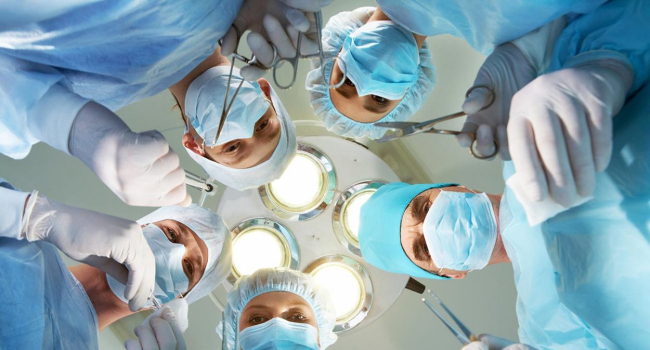- Latest news▼
-
11:08, April 25 Mpox epidemic declared in Republic of the Congo

-
08:31, April 25 OU: quitting smoking 4 times more likely to cure laryngeal cancer

-
01:20, April 25 Paralyzed man in China writes hieroglyphs using neural implants placed in his brain

-
15:11, April 24 Zombie deer disease possibly linked to hunters’ deaths

-
12:27, April 23 Appetite: Scientists found out the secret to the appeal of large portions of fast food

-
10:33, April 23 Scientists test new approach to fighting viruses

-
08:38, April 23 Ketamine may help with postpartum depression

-
22:12, April 22 Unhealthy amount of sugar found in baby food products of a well-known brand

-
19:41, April 22 Air pollution puts health of more than 1.6 billion workers globally at risk

-
17:25, April 22 Scientists found baked goods and lack of sleep to be more dangerous than alcohol

-
16:02, April 22 342 cases of measles recorded in Armenia so far in 2024

-
15:29, April 22 BrainStimulation: electrical brain stimulation alleviates anxiety and depression in the elderly

-
08:27, April 22 Cognitively stimulating jobs in midlife could lower dementia risk in old age, study finds

-
20:37, April 21 Environmental Health Perspectives: Microplastics ingested with food and water can spread from the gut to the brain

-
22:41, April 20 Scientists develop new method to safely stimulate immune cells to fight cancer

All materials
What kind of people wake up during anesthesia and how to predict it

Brain structures that can predict a person's predisposition to accidental awareness under anesthesia have been identified for the first time at Trinity College Dublin.
The results may help identify people who may need above-average doses of anesthetics. Although anesthesia has been used in clinical medicine for more than 150 years, scientists don't fully understand why its effects on people are so varied.
One in four patients supposedly unconscious during general anesthesia can actually have subjective experiences such as dreams, and in very rare cases (0.05-0.2%) people accidentally "wake up" during a medical procedure. The new study involved 17 healthy people who were injected with the most common clinical anesthetic.
The participants' reaction time to the detection of a simple sound was measured when they were awake and when they were under sedation. The brain activity of 25 participants was also measured when they listened to a simple story in both states.
As it turned out, participants who were resistant to anesthesia had fundamental differences in the function and structures of the frontal-parietal brain regions. It is important to note that these brain differences can be detected in advance. People with more gray matter in frontal areas and stronger functional connectivity in frontoparietal brain networks may require higher doses of anesthetic during surgical interventions, the researchers claim.
Follow NEWS.am Medicine on Facebook and Twitter
- Video
- Event calendar
- Archive
- Most read
month
week
day
- JAMA Oncology: Urine test can help rule out high-grade prostate cancer with almost 100% accuracy, study shows 1267
- Scientists grow human mini-lungs in lab 1154
- Next pandemic likely to be triggered by flu - scientists 913
- Scientists found baked goods and lack of sleep to be more dangerous than alcohol 825
- 342 cases of measles recorded in Armenia so far in 2024 782
- Scientists develop new method to safely stimulate immune cells to fight cancer 762
- Blood test can determine who is at risk of developing multiple sclerosis - scientists 759
- Cognitively stimulating jobs in midlife could lower dementia risk in old age, study finds 747
- BrainStimulation: electrical brain stimulation alleviates anxiety and depression in the elderly 691
- Unhealthy amount of sugar found in baby food products of a well-known brand 565
- Air pollution puts health of more than 1.6 billion workers globally at risk 560
- Ketamine may help with postpartum depression 546
- Appetite: Scientists found out the secret to the appeal of large portions of fast food 546
- Scientists test new approach to fighting viruses 526
- Zombie deer disease possibly linked to hunters’ deaths 414
- Find us on Facebook
- Poll





